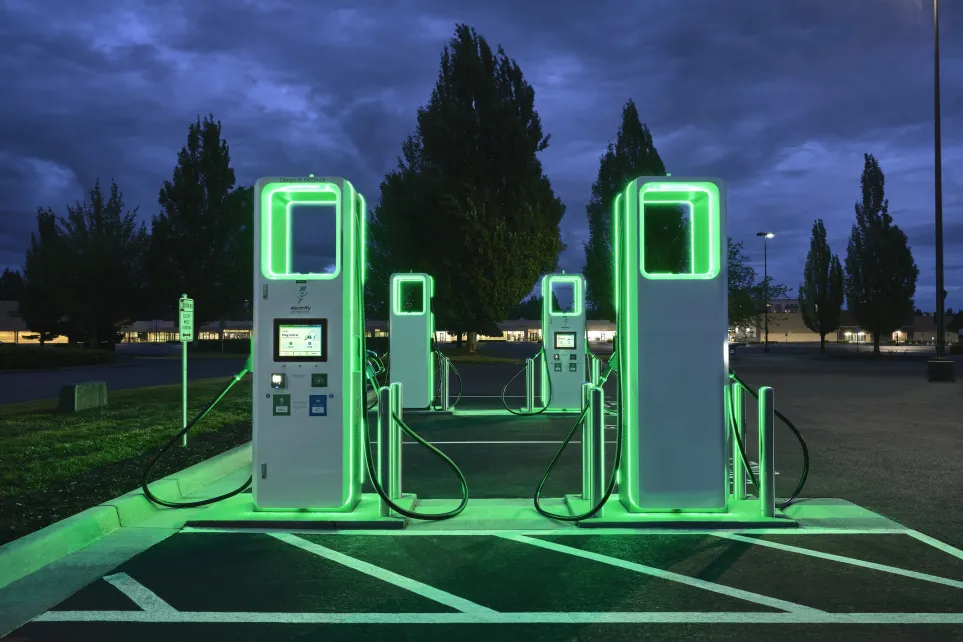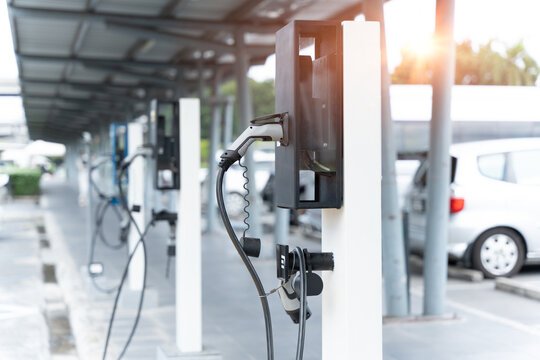
Electrical Vehicle
Pakistan’s transportation sector faces a critical challenge due to its dependence on imported fossil fuels. Although electric vehicles (EVs) offer environmental benefits, adoption rates remain low, with EVs constituting just one percent of the market. This slow transition is compounded by inadequate charging infrastructure, leaving EV users facing high energy costs. According to recent studies, EVs could help Pakistan reduce both environmental degradation and its fuel import burden, consequently narrowing trade deficits.
Electric vehicle (EV) charging stations in Pakistan were first introduced in 2017. The government has since announced plans to install more charging stations across the country, including at every fuel station in Islamabad.
History
In January 2017, Dewan Motors and BMW opened Pakistan's first public EV charging station in Lahore.
In February 2017, Dewan Motors opened another EV charging station in Karachi.
In July 2020, Pakistan State Oil (PSO) opened its first EV charging station in Islamabad.
Government initiatives
The government has announced plans to install charging stations at every fuel station in Islamabad.
The government has established the National Energy Efficiency and Conservation Authority (NEECA) to regulate EV charging stations.
The government has offered incentives to promote the use of EVs.
Challenges High electricity costs, Underdeveloped road network, High price of EVs, and Insufficient charging infrastructure.
Benefits
EVs can help decarbonize Pakistan's transport sector.
EVs can create jobs and opportunities for economic growth.
Pakistan has introduced new rules and regulations to promote EV charging stations and the wider EV industry. The government aims to have 30% of the country’s vehicles running on electric power by 2030.
In order to achieve a 30 per cent EV rate by 2030, the government plans to boost infrastructure development, as well as electric car and motorcycle production, and charging networks.
To help boost EV charging infrastructure, a 44% reduction in electricity rates for EV charging stations has been announced. Additionally, the government has introduced a fifteen-day fast-track registration process for charging stations.
Furthermore, Pakistan plans to convert ten million motorcycles to electric, a shift, that the Pakistani government estimates could save the country $6 billion per year by reducing fuel imports. The report does not mention what kind of subsidies or grants are envisioned to help achieve this, however.

Pricing Plans
Stay updated with the latest developments and offerings from PowerUpPrivate. We are committed to keeping you informed about our energy solutions and services.

Our Vision
At PowerUpPrivate, our mission is to empower individuals and businesses with sustainable energy solutions that enhance efficiency and reduce environmental impact.
Discover the innovative energy solutions we provide at PowerUpPrivate. Our commitment to sustainability and efficiency drives us to deliver the best services in the industry.